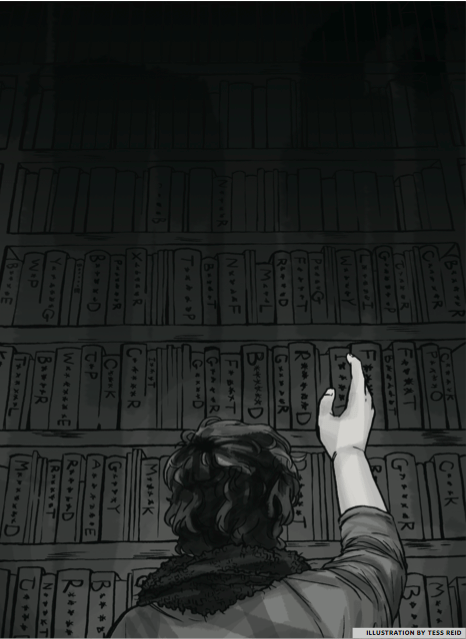 In gender studies course at a liberal university like York, it’s reasonable to expect an openness to new ideas about gender and sexuality. Not to assume that everyone shares liberal views of gender and sexuality, but I think there is an established decorum when discussing these identities, especially around what is acceptable vocabulary in a classroom setting.
In gender studies course at a liberal university like York, it’s reasonable to expect an openness to new ideas about gender and sexuality. Not to assume that everyone shares liberal views of gender and sexuality, but I think there is an established decorum when discussing these identities, especially around what is acceptable vocabulary in a classroom setting.
But apparently not everyone has clued in. In one class, I heard a student ask a question while referring to men who engage in sex with other men as “faggots.” My ears went numb, and I was in disbelief. “Faggots.” Not a sneer through “homosexuals” or scoff before “gays,” but a word that purposefully digs deep into an attitude of abhorrence and abuse. How could you say that?
Other students in the class looked around at each other for clarification—did that really happen? No way would someone at a university ever say that word in a classroom. How, in an environment of ideological acceptance where we are learning the new ways in which people identify themselves, could we hear this?
A classroom is a place to feel safe and share ideas that may differ from one’s own. To use hateful vocabulary shows little knowledge about the issues surrounding these words and how deeply they affect people.
A university should strive to teach its students about the historical and contemporary changes to societal attitudes around the world. Education on different identities is integral to helping students develop an appropriate vocabulary for discussing their world and the peoples they encounter.
I use to be indifferent to the York Federation of Students’ campaign to allocate a selection of equity studies courses to essentially serve as new general education credits. This campaign primarily stems from York’s experiences with violence.
But more freedom to take equity courses would ensure an education that not only deals with the multitude of identities that people use, but provides a vocabulary to understand and discuss these labels, while not blatantly disrespecting and discriminating.
Maybe this sounds highly idealistic. But in university, I see no reason why we can’t expect more from ourselves and our peers. Using an appropriate vocabulary, I feel, shows both support and an awareness of the issues of prejudice and ignorance. People have differing views on sexualities, among other identities. However, to have the ability to consider other identities, comes with education first.
The professor of that class, stumbling but kind, corrected the student and advised them about the use of derogatory words. Learning about the effects that language has on others helps us develop a better understanding of the people around. This student was in the right course.
Tess Reid
Comics and Graphics Editor


